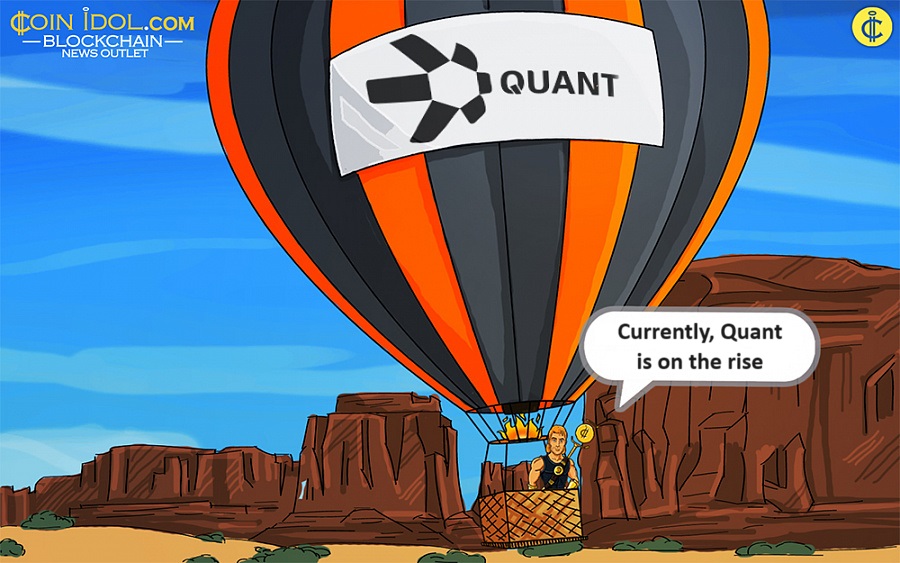Wells Fargo Predicts Tariff-Driven Inflation Rise Amid Consumer Fatigue
The post Wells Fargo Predicts Tariff-Driven Inflation Rise Amid Consumer Fatigue appeared on BitcoinEthereumNews.com. Key Points: Wells Fargo anticipates inflation increase influenced by tariffs. Consumer fatigue impacts price pass-through efforts. Federal Reserve may adopt a cautious interest rate approach. On August 12, Wells Fargo announced that higher U.S. tariffs are influencing consumer price increases, with expectations for moderate inflation growth in the later months of the year. This has implications for consumer spending and may affect Federal Reserve interest rate decisions, potentially impacting market stability and financial strategies. Tariff-Driven Inflation and Consumer Challenges Wells Fargo’s economics team predicts inflation will rise due to tariff effects in H2. The bank has stated, “We expect the headline CPI to rise… Excluding food and energy… We anticipate core prices picking up as a result.” Higher tariffs are impacting prices, causing firms to struggle with consumer fatigue. Wells Fargo’s analysis suggests that this fatigue limits price transmission to end customers. There is substantial discussion among Federal Reserve officials about potential tariff impacts. Wells Fargo notes a “hawk-dove standoff”, underscoring possible caution in any interest rate cut decisions. “We expect the headline CPI to rise… Excluding food and energy… We expect core goods prices to pick up further in the second half of the year as a result, but look for the pass-through to be limited by growing consumer fatigue.” — Wells Fargo Economics Team, Economics Special Reports, Wells Fargo Corporate & Investment Bank Historical Patterns and Federal Reserve Outlook Did you know? In the past, tariff pass-through episodes have often resulted in increased core goods pricing as inventory depletes, repeating patterns seen in past similar economic contexts. Bitcoin, trading at $118,394.85, represents a market cap of approximately $2.36 trillion, securing a market dominance of 59.71%. Prices have experienced fluctuations, showing a 1.68% decrease over 24 hours yet 3.09% increase over the past week, according to CoinMarketCap. Bitcoin(BTC), daily…

The post Wells Fargo Predicts Tariff-Driven Inflation Rise Amid Consumer Fatigue appeared on BitcoinEthereumNews.com.
Key Points: Wells Fargo anticipates inflation increase influenced by tariffs. Consumer fatigue impacts price pass-through efforts. Federal Reserve may adopt a cautious interest rate approach. On August 12, Wells Fargo announced that higher U.S. tariffs are influencing consumer price increases, with expectations for moderate inflation growth in the later months of the year. This has implications for consumer spending and may affect Federal Reserve interest rate decisions, potentially impacting market stability and financial strategies. Tariff-Driven Inflation and Consumer Challenges Wells Fargo’s economics team predicts inflation will rise due to tariff effects in H2. The bank has stated, “We expect the headline CPI to rise… Excluding food and energy… We anticipate core prices picking up as a result.” Higher tariffs are impacting prices, causing firms to struggle with consumer fatigue. Wells Fargo’s analysis suggests that this fatigue limits price transmission to end customers. There is substantial discussion among Federal Reserve officials about potential tariff impacts. Wells Fargo notes a “hawk-dove standoff”, underscoring possible caution in any interest rate cut decisions. “We expect the headline CPI to rise… Excluding food and energy… We expect core goods prices to pick up further in the second half of the year as a result, but look for the pass-through to be limited by growing consumer fatigue.” — Wells Fargo Economics Team, Economics Special Reports, Wells Fargo Corporate & Investment Bank Historical Patterns and Federal Reserve Outlook Did you know? In the past, tariff pass-through episodes have often resulted in increased core goods pricing as inventory depletes, repeating patterns seen in past similar economic contexts. Bitcoin, trading at $118,394.85, represents a market cap of approximately $2.36 trillion, securing a market dominance of 59.71%. Prices have experienced fluctuations, showing a 1.68% decrease over 24 hours yet 3.09% increase over the past week, according to CoinMarketCap. Bitcoin(BTC), daily…
What's Your Reaction?




































